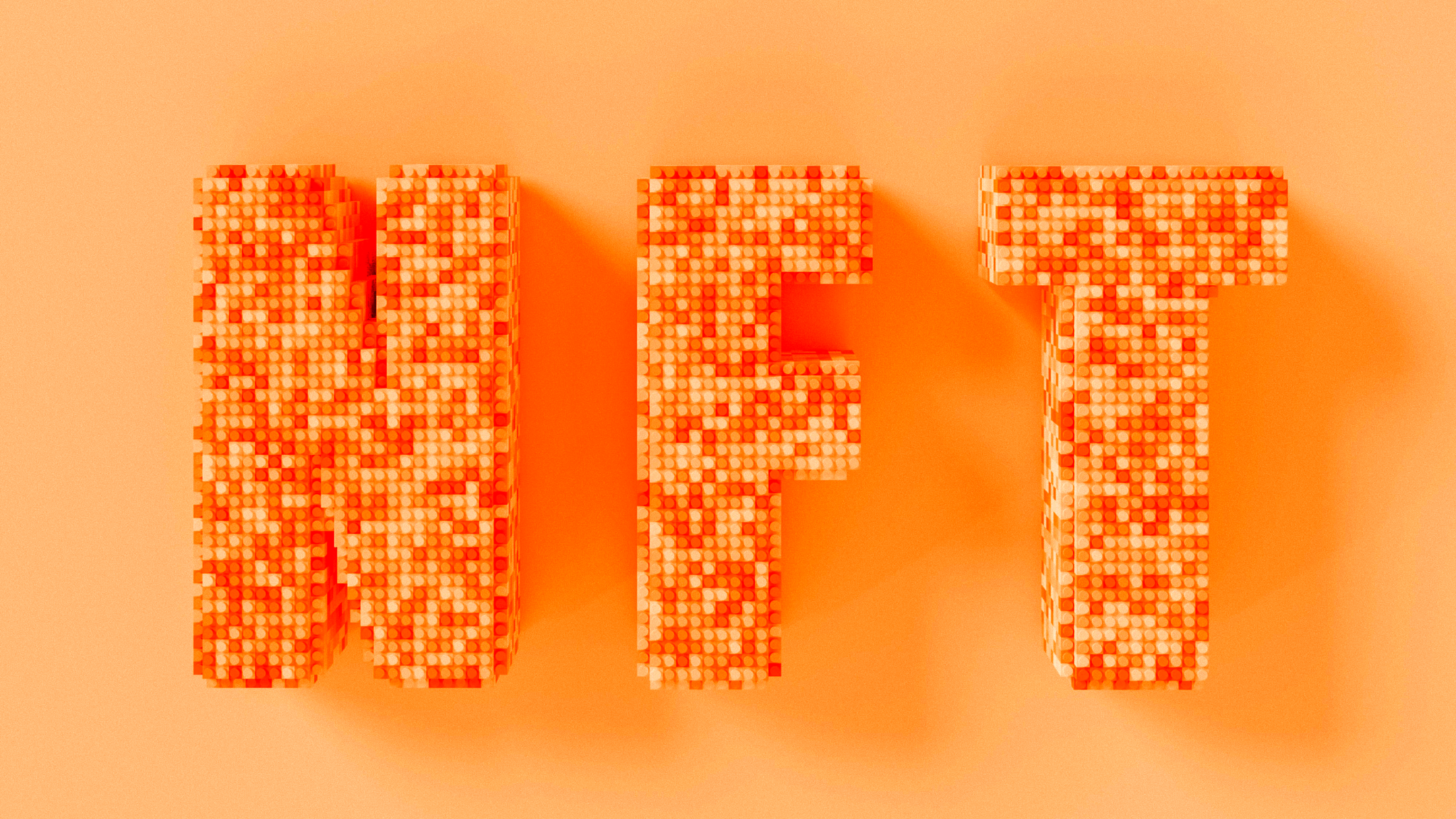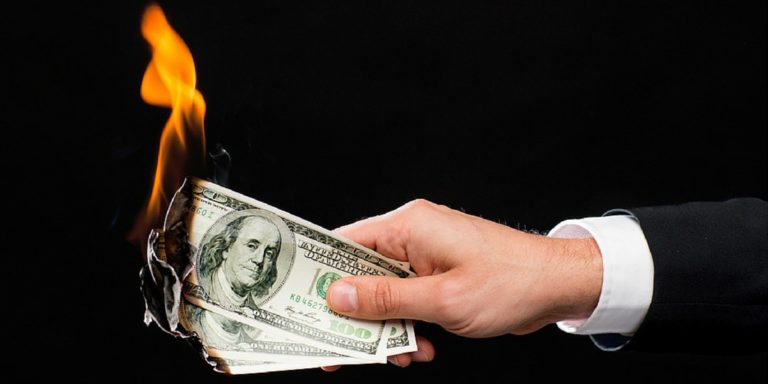One of the most-talked-about technology trends in 2021 was NFTs, or “non-fungible tokens.” It’s becoming increasingly clear that NFTs are not just a fad and will quickly infiltrate most industries sooner or later, including event management. These tokens are part of the “metaverse,” which is a digital universe that encompasses many different types of technologies — including social media, virtual reality, augmented reality, online gaming, and cryptocurrencies — people can use to interact with each other.
Event organizers should keep up with new developments in metaverse technology like NFTs and discover ways to incorporate them into events planning, management, and promotion. Let’s break down what NFTs are, their benefits, and how you can use this technology for events.
What Are NFTs?
An NFT is a unique token that contains a piece of digital property. They are linked to the blockchain, which is the digital database that supports cryptocurrencies like bitcoin and Ethereum. The “non-fungible” part means that the tokens are unique and one cannot automatically be exchanged for another — unlike bitcoin or Ethereum, which are exchangeable.
NFTs can be anything digital, like a drawing, music, GIFs, videos, domain names, in-game items in video games, or even a tweet. They’ve become most popular with digital artists and celebrities.
Why NFTs Are So Popular
The total value of NFT sales worldwide reached $2.5 billion in the first half of 2021. Why have they exploded in popularity?
The process of buying and selling NFTs supports the concept of “digital ownership.” At the dawn of the internet age, it became increasingly easy to rip off artists, musicians, or other creators by simply making your own copy of their work. NFTs aim to stop that practice by tracking digital ownership more closely. For example, when an author releases a book as an NFT and sells it, the new owner has proof that it belongs to them in their digital wallet.
NFTs are based on the Ethereum blockchain, which also allows creators to attach long-term royalty rights to the NFT, so they get a cut every time the NFT is sold to another owner. There’s a lot of buzz around high-value NFTs being sold, like the $69.3 million Beeple artwork “Everydays: the First 5000 Days.” However, you don’t need to be a millionaire to start buying and selling NFTs. One-third of NFT sales cost less than $100, and half of NFT sales cost less than $200.
The Benefits of NFTs
According to Ethereum.org, some of the biggest advantages of using NFTs include:
- NFTs are digitally unique (a copy of the asset is not the same as the original)
- Every NFT must have an owner, which is public record
- Ethereum NFTs can be traded for other NFTs, like trading an NFT ticket for an NFT piece of art
- Digital content creators can sell their work globally
- Creators retain ownership rights and claim resale royalties
How To Use NFTs
Buyers can find NFTs on blockchain-based platforms and pay for them with money or cryptocurrency. Once the token’s asset changes hands, it’s recorded in the blockchain. Buying NFTs can be a great way to support independent artists and creators by ensuring they benefit monetarily each time their original work is resold.
Although creators and artists are driving the NFT boom with visual media, sellers are starting to come from the business world and other industries as well. One example is Twitter CEO Jack Dorsey selling his first-ever tweet as an NFT for $2.9 million. Fashion brand RTFKT sold a digital jacket for $125,000. A New York Times columnist sold a digital version of his column for $560,000. Dallas Mavericks owner Mark Cuban started selling tickets to Mavericks games as NFTs to “reward fans” for coming to the games rather than reselling tickets at a high markup.
As the Dallas Mavericks example shows, NFTs have a place in the live events industry and the sooner event managers start capitalizing on them, the sooner they can create unique and dynamic experiences for their event attendees.
NFTs for Events
From ticketing and live experiences to swag and gamification, NFTs hold enormous potential for the events industry. The following six trends show how promoters can incorporate NFTs for events.
Concerts and Music Festivals
Many popular musicians have taken to using NFTs, and not just for selling their music. They’ve incorporated them into concerts and live event experiences, as the band Kings of Leon did for their latest album released in March 2021. They released their album as an NFT but also offered two different types of tokens. One included perks for their live show, and another offered 18 “golden tickets” for front-row seats for every Kings of Leon concert for life.
Kings of Leon have set the bar for what’s possible with NFTs for musicians and live concerts. Promoters can use NFTs to let attendees unlock exclusive experiences at both live and virtual events.
Dynamic Ticketing
Selling event tickets as NFTs has already become one of the popular ways event promoters incorporate them. An NFT ticket is different from a regular ticket for several reasons, however. First, the ticket’s code lives on the blockchain, so authentication is more rock-solid. You can prevent resale fraud and earn a commission when the original owner resells their NFT ticket, thereby generating more concert and music festival ticket revenue while effectively blacklisting scalpers.
Tickets in the metaverse are also dynamic, so you can update their information or let your attendees exchange them for different NFTs that unlock free swag. One example is the V as in Meta Verse conference organized by investor and entrepreneur Jon Romero. He made all of his conference tickets NFTs and let ticket holders either resell them on the large OpenSea market or use them to unlock premium videos from the conference.
Selling Swag
Selling NFTs as event merch is one obvious application, but event marketers can get creative with them. You can sell the NFTs themselves as the swag, such as a memorabilia ticket with the final score of the Mavericks vs. Lakers game you attended.
Selling digital products rather than physical ones also allows you to individualize them by taking advantage of the fact that you have the NFT owner’s name and information. Digital products could be exclusive event videos, an additional song not available on the album, premium artwork, and more.
You can also set NFTs to unlock physical products, thus allowing NFT owners to claim a T-shirt or hoodie at the event. Since authentication is tighter with NFTs, you can weed out any scammers that go after the free items you offer.
Experiential Event Marketing
NFTs can allow people to not only buy and sell event tickets and merchandise, but own moments as well. Events are all about creating unforgettable experiences and NFTs can help keep those moments alive for attendees. For example, an NFT can be an event video highlighting the best moments for people to relive again. You could also give out tokens as prizes for a contest or giveaway you hosted.
Letting people own experiences this way strengthens your fan base and tightens the community around your brand. You can also sell experiences as NFTs to those people who missed the event, thus reaching an even wider audience and making your event more inclusive.
Award Ceremonies
Many events today are hybrid, and award ceremonies are no exception. When you have award recipients joining the event remotely, physical plaques or statuettes fall short because the recipients can’t “accept” them in person. Also, many people feel that having someone else accept an award on their behalf doesn’t feel as special either.
Hybrid award ceremonies, therefore, can benefit from digital awards. NFTs for these events can be highly personalized by reflecting the creative and innovative achievements of the award winners. Many major award shows are also creating NFT collectibles to give to award nominees or fans. For instance, The Grammy’s partnered with an NFT marketplace for music tokens to offer NFTs related to award winners for the 64th, 65th, and 66th Grammy ceremonies. The CMA Country Music Awards also partnered with an NFT platform to offer exclusive NFTs following the 2021 edition of the awards show.
Gamification
Gamification has been a hot trend in many industries for several years now. There are many avid gamers and competitive people in the world, so when you turn a customer journey into a game, you’re more likely to get conversions. The experiential aspect of events makes them perfect for gamification strategies, as many event promoters already know.
You can get creative when you combine NFTs and event gamification. One example is holding a virtual contest with an NFT for a 1:1 session with a keynote speaker as the prize. You could also host a virtual scavenger hunt and use NFTs as the clues that move people to the next round. Non-Fungible tokens fit seamlessly with experiential marketing and gamification for events, especially virtual and hybrid events.
The Future of Events and NFTs
NFTs increasingly represent a major component of the events industry and can potentially change the future. They present increased marketing and revenue opportunities, as well as the chance to enhance event attendee experiences. If you want to incorporate NFTs into your event management or promotion strategies, the comprehensive suite of products and solutions that Events.com provides can make it easier to do so.
Events.com powers your event with end-to-end management solutions, including ticket and registration sales, marketing, and sponsorship solutions. Request a demo to start creating your perfect event today.




